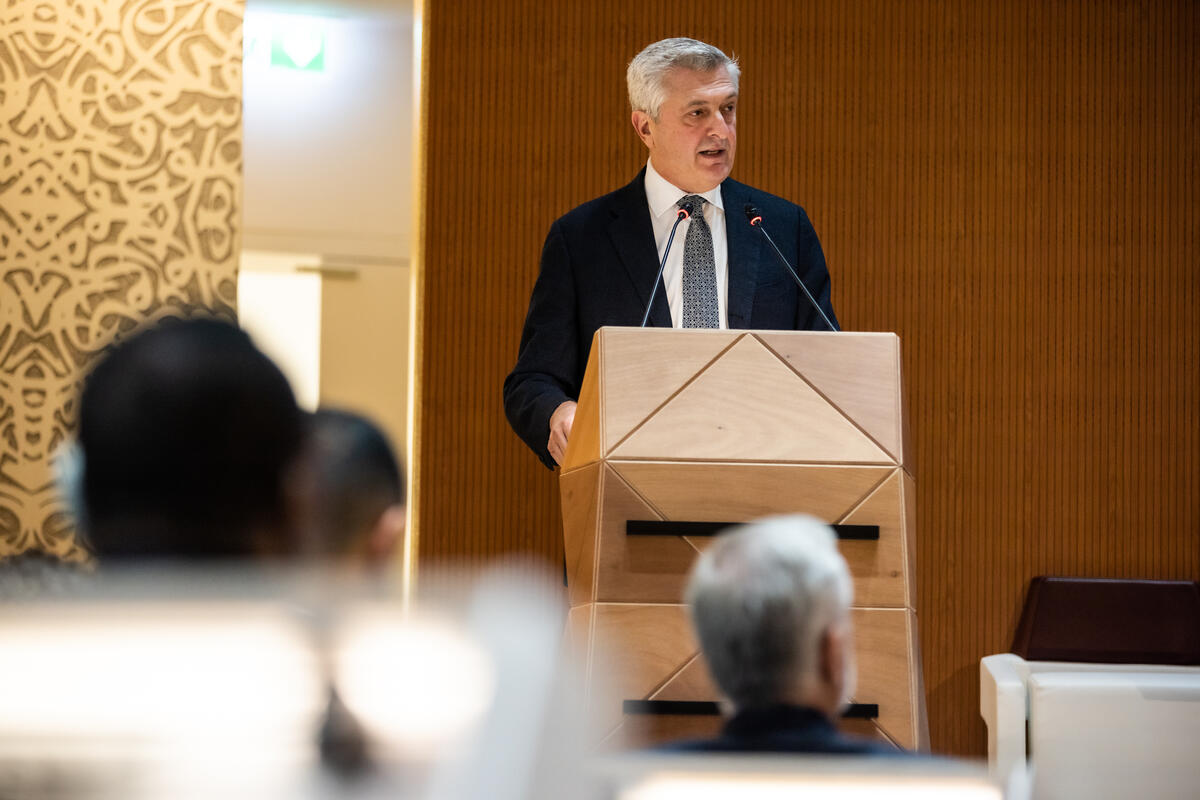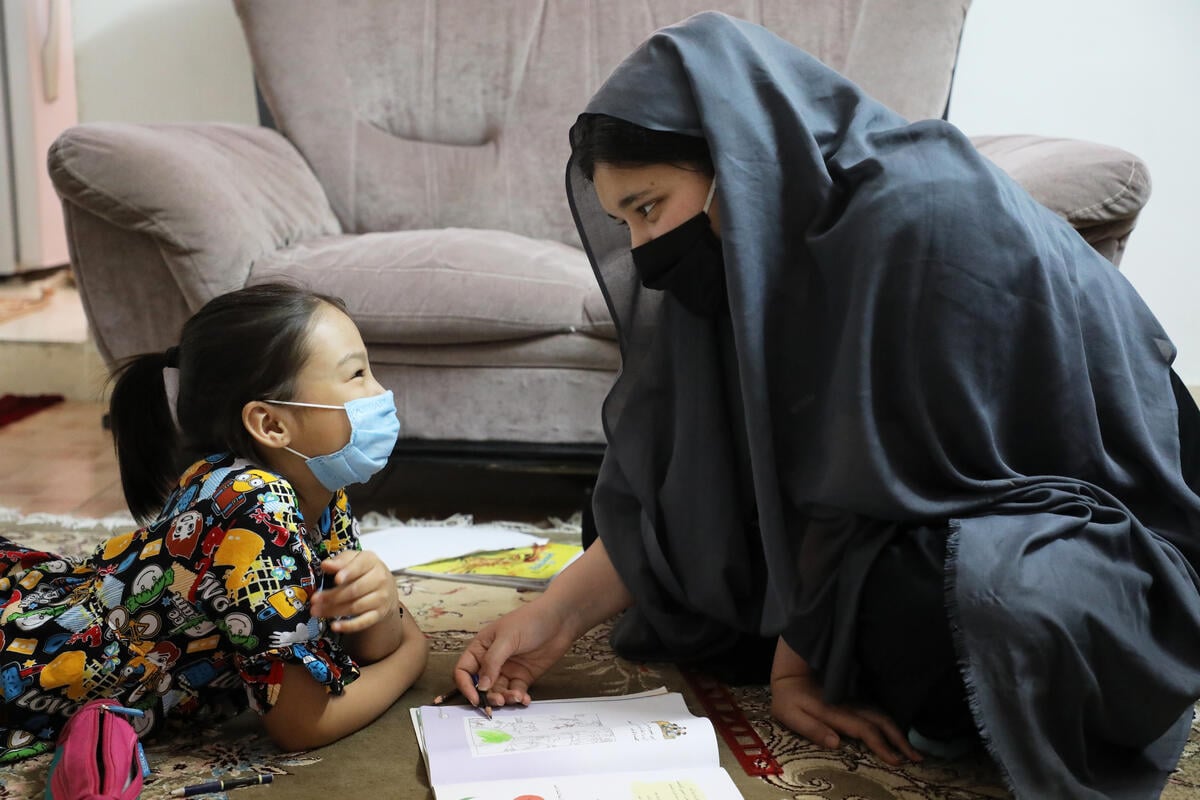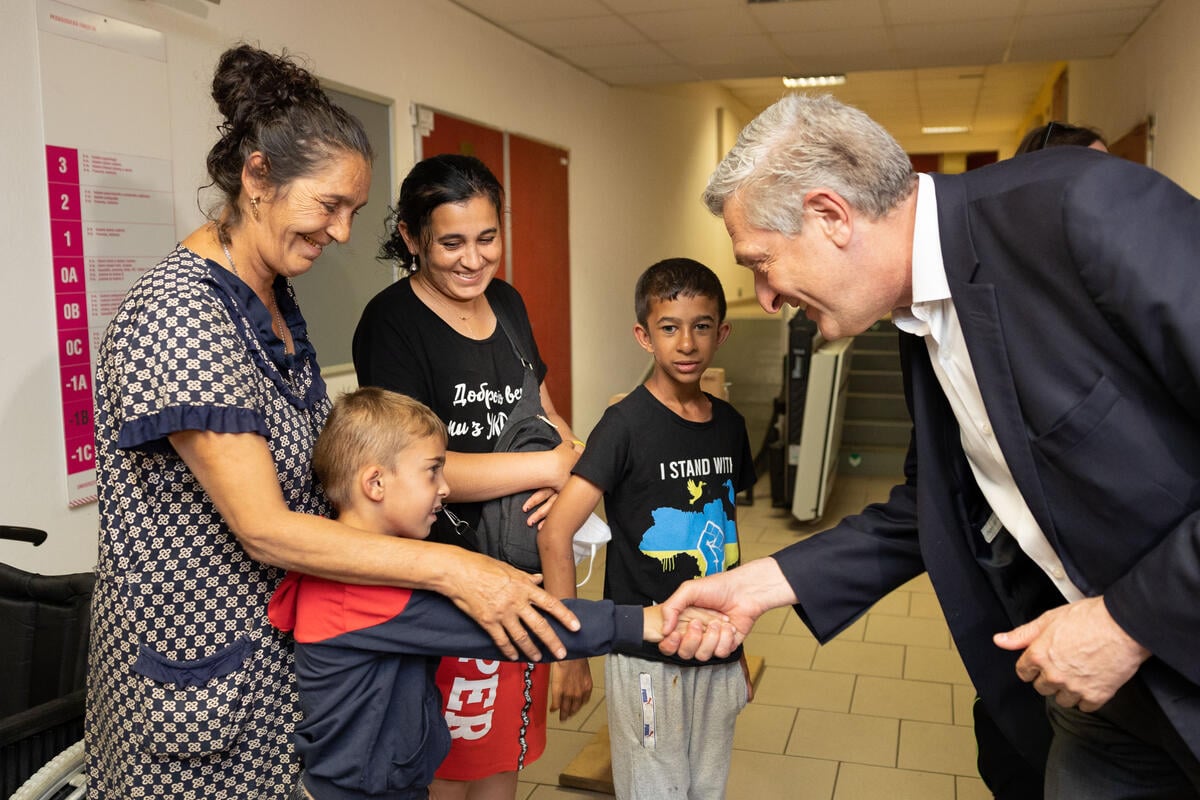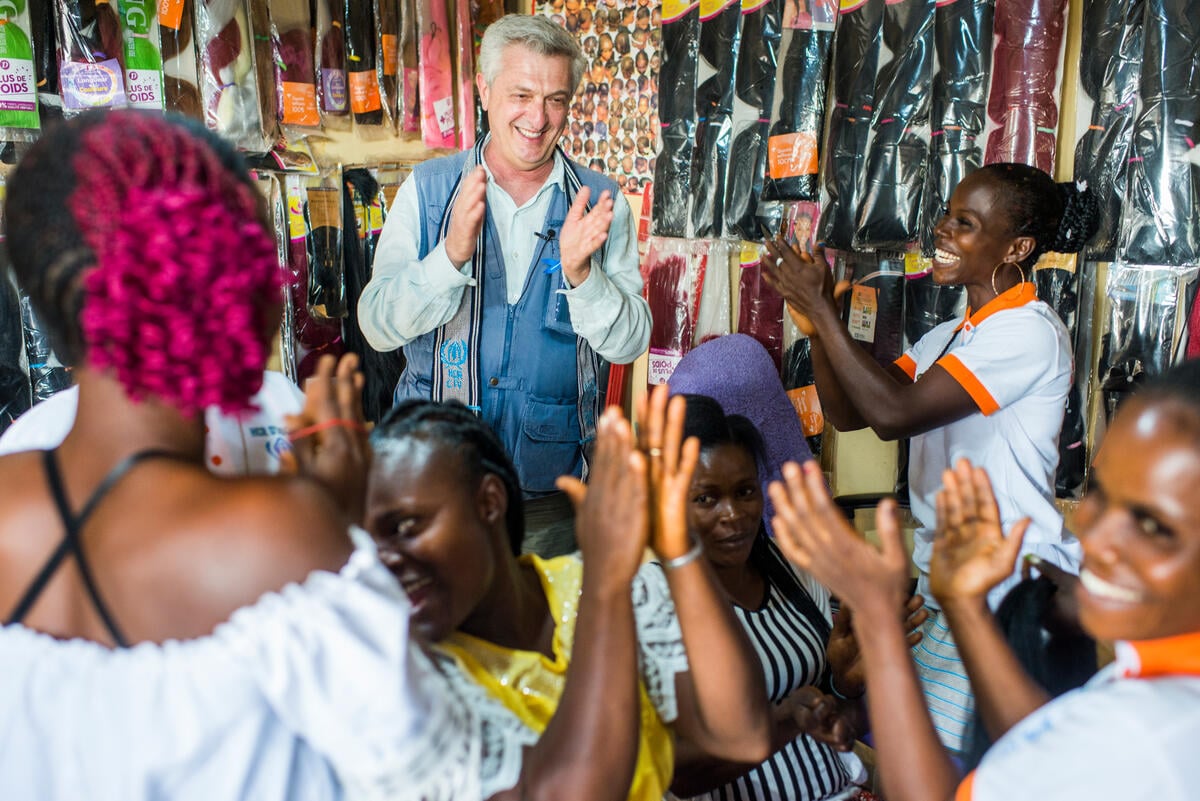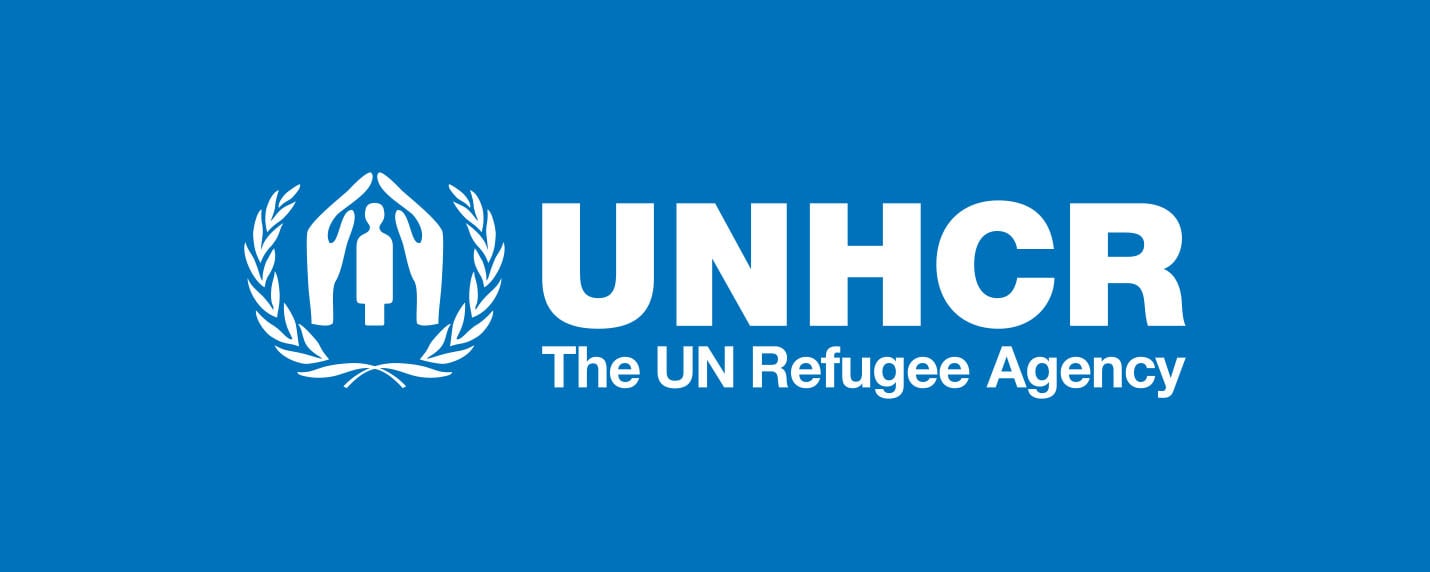UNHCR calls on Mozambique authorities to stop deporting asylum-seekers
UNHCR calls on Mozambique authorities to stop deporting asylum-seekers
Ninety-three asylum seekers were deported to Tanzania in the early hours of Tuesday morning. The group, comprising 59 Somalis and 34 Ethiopians, had recently arrived by boat near Mocimboa da Praia in northern Mozambique. Most were young men but among them was a woman, four children, and three elderly men. Many were suffering medically as a result of their journey.
UNHCR staff who met the group in Mocimboa da Praia during an assistance mission, were unaware that they were to be deported. The asylum-seekers told our staff that they had been part of a group of some 134 people who had been forced into the sea off the Mozambique coast by a crew that was nervous of patrol boats. Four people were said to have drowned. Most of those who made it to shore re-grouped and spent nearly 12 hours crossing dense forest before they were reported by locals to police, who brought them to Mocimboa da Praia. Thirty seven people are unaccounted for, believed lost in the forest.
On the understanding that the 93 were being taken to a site for newly arrived asylum-seekers near Palma town, UNHCR helped organize transportation by police. However, instead of bringing them to the reception site police instead took them away and later deported them. Senior police officials later advised UNHCR that they were under orders to deport all new arrivals.
UNHCR has learned from other asylum-seekers who were brought to the UNHCR-run Maratane refugee camp over the weekend, that Mozambican authorities confiscated their mobile phones as well as their shoes, to deter them from walking back into Mozambique.
These reports were also confirmed by other international humanitarian organizations in Palma as well as by a joint mission of our team with Tanzanian authorities, during interviews with deported asylum-seekers found on the other side of the border in Tanzania. Some of these asylum-seekers said they witnessed or suffered brutality by police and border officials. Some reported that in their previous attempts to cross into Mozambique, they were not deported to official Tanzania border posts but rather left, stripped of clothing and belongings, in deserted islands at the mouth of the Rovuma river between Tanzania and Mozambique.
This is not the first incident of this kind. Last week, UNHCR received reports from staff of another international humanitarian organization about a deportation of 150 individuals on the 16th of June. This has since been confirmed by our colleagues in Tanzania.
UNHCR has written to the Government of Mozambique reminding it of its obligations under the 1951 Convention on the Status of Refugee and the 1969 OAU Refugee Convention.
7,450 Somali and Ethiopian asylum-seekers arrived at the Maratane camp between January 2011 and June 2011. Of these, 3,154 are Somalis, while the remaining 4,296 are from Ethiopia. This figure nearly corresponds to total arrivals from both countries during 2010. It is believed that many of them are trying to make their way to South Africa.
As more people flee from the Horn of Africa southwards, including to Mozambique, UNHCR has been working closely with the Mozambique authorities as well as IOM and WFP to establish a screening center in Palma as well as on improving the conditions in Maratane refugee camp in Nampula, which is becoming congested withrecent arrivals.
For further information on this topic, please contact:
-
In Pretoria, South Africa: Tina Ghelli, on mobile +27 82 770 41 89
-
In Geneva: Fatoumata Lejeune-Kaba, on mobile +41 79 249 34 83




